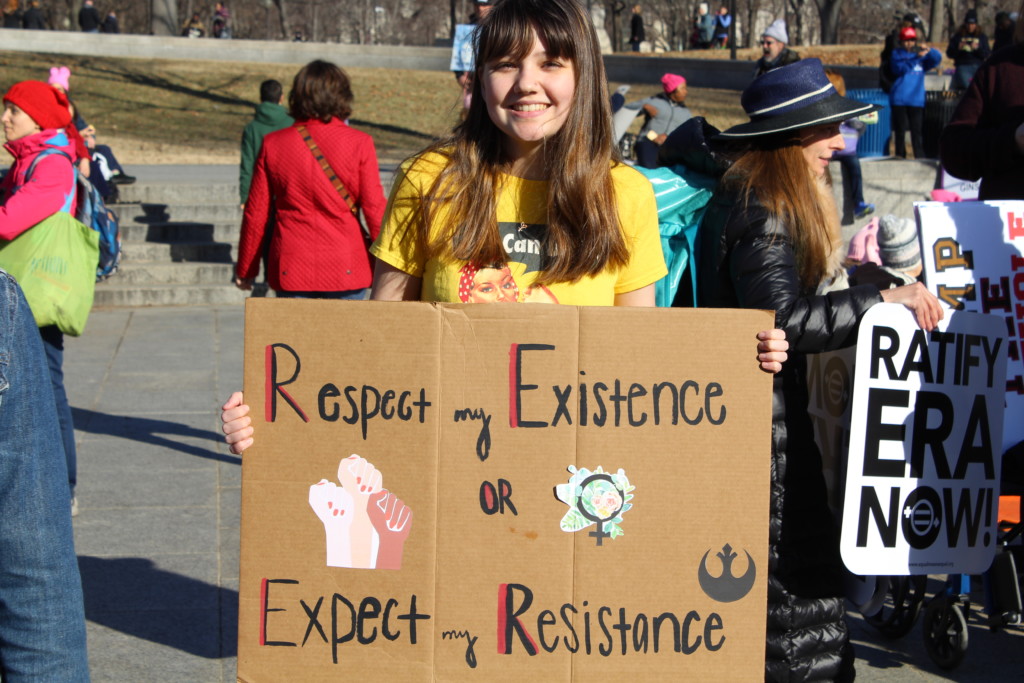Sexual harassment and assault have been at the forefront of political consciousness on both the local and national level, sparking mass campaigns like the Me Too and Time’s Up movements, which became increasingly relevant in 2016 following the presidential election and the numerous misconduct allegations against people in power.
According to the National Sexual Violence Resource Center (NSVRC), sexual assault is the least reported crime in the United States, with approximately 63 percent of incidents remaining undisclosed to authorities. The Me Too movement emerged in recent years as an attempt to encourage victims of sexual assault to speak out, which sophomore Emma Greene said is a much-needed acknowledgment of their suffering.
“The Me Too movement is important because it allows survivors to be able to share their stories and know that they are not alone,” Greene said. “For too long victims have been told to keep silent, but [this] movement acknowledge[s] [their] struggles and provide[s] healing and support for them.”
The NSVRC states one in three women and one in six men experiences sexual abuse nationally, and the Rape, Abuse and Incest National Network (RAINN) reports approximately 0.6 percent of perpetrators will receive a sentence. Senior Audrey Fauvel said the current political climate is a chance for the public to shed light on major systemic problems.
“Not only do these movements provide support to those victims, but [they] also expose the issues we have in our society and justice and political system[s] for punishing those guilty of sexual misconduct,” Fauvel said.
Protests regarding violence against women and women’s rights, as well as other social issues, have also garnered more attention in the United States and across the globe. The 2017 Women’s March had approximately half a million participants in Washington D.C. alone, with similar marches occurring around the country and the world.
“Both [the Me Too and Time’s Up] movements encourage people to speak up and to focus on women’s issues around the world,” Greene said.
During the conformation hearings for newly appointed Associate Justice Brett Kavanaugh, the Federal Bureau of Investigation investigated him for sexual assault regarding accusations from Dr. Christine Blasey Ford, as well as several other women that followed soon after. Sophomore Michaela Wacht said awareness about the severity of sexual assault resurfaced among the American public during his confirmation, due in part to the efforts of these national movements.
“A long time ago, people in power would have discarded Ford’s allegations on the basis that she is a woman, and Kavanaugh is a respectable judge,” Wacht said. “Just having the hearing showed how the Me Too and Time’s Up movements impacted [the country’s progress].”
Although Kavanaugh faced backlash from the allegations against him, plenty of legislators continued to support him. The Senate vote for his confirmation was 50 to 48 in favor of Kavanaugh, allowing him to replace former Justice Anthony Kennedy.
“Even with several sexual assault allegations, Republican judge Brett Kavanaugh was still appointed,” Greene said. “This act basically told victims of sexual assault around the world their voices and their stories don’t matter.”
Title VII of the Civil Rights Act of 1964 outlawed all forms of sexual discrimination, including sexual harassment. But states reserve the right to handle sexual assault cases individually, resulting in the application of different legislature all across America.
“There should be cohesive laws nationally [which] can be considered a base that states build off of,” Wacht said. “Victims really just need to be heard […] and officials should take their accusations seriously [by] investigat[ing] the allegations and the person accused thoroughly.”
According to RAINN, police receive reports of one out of every three sexual harassment incidents, with an estimated 20 percent of victims stating they did not report their experience because they feared retaliation from others. According to Our Resilience, a non-profit organization created to aid sexual assault victims, false reporting of sexual abuse is between two and eight percent as of this past September.
“It can be scary and very difficult to speak up about what one has faced in fear of the responses they will receive […] because there is an issue in our country on how we deal with these topics,” Fauvel said. “But if enough people come out and talk about their story, maybe the mindset of victim blaming that we have in our society will change for the better.
2018-11-27

